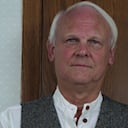The 'Candide' character Pangloss, who claimed that ours is the "best of all worlds", is meant to represent which philosopher?
In the 17th and 18th centuries, the German rationalist philosopher, Gottfried Wilhelm Leibniz (1646-1716), became a great renaissance man of Western thought. He worked greatly writing about philosophical theology. He pointed out that (1) God is a being having all perfections; (2) perfection is a simple and absolute property; and (3) existence is a perfection. Leibniz became the very smart and clever philosopher that Pangloss represented in Voltaire's satire.
In the French satire 'Candide', Pangloss is the philosopher who applies Leibnizian optimism and serves as Candide's tutor. The optimistic belief that this world is “the best of all possible worlds” is the primary theme of the novel's satire. Pangloss's own experiences however contradict this belief, but he remains faithful to it nonetheless.
As the author, Voltaire, clearly brought out in 'Candide', it seems that the world is not short on natural and moral horrors and is far from perfect. Indeed, it seems to be very lousy most of the time. Only a true fool could believe that it is the "best world" possible. But, Leibniz and Pangloss in the novel speak on behalf of the true fool.
More Info:
en.wikipedia.org









